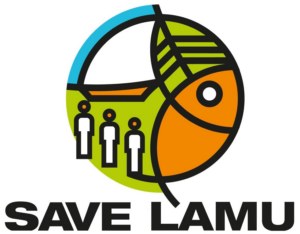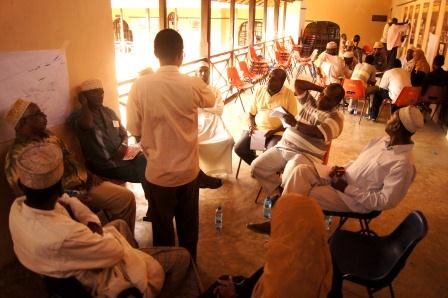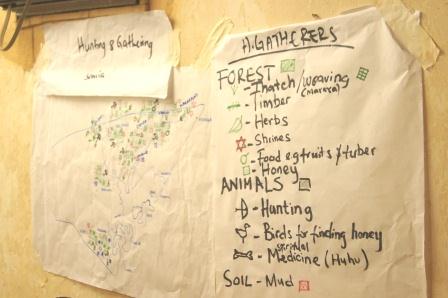Save Lamu held a 2.5 day workshop on livelihoods and natural resource rights towards producing a Bio-cultural Community Protocol (BCP), a document that will be used to support local communities to engage with external actors, such as government agencies, researchers, private companies towards securing their rights and responsibilities in the areas in which they live. The workshop was held at the Lamu Fort on 20-22 March with over 50 participants representing different locations in the county and representatives from key local organizations from all over Lamu, including the Orma, Bajun, Aweer, Sanye, Pokomo, and Waswahili indigenous communities
The information generated during the workshop will be collated and used to produce a draft of the Lamu BCP, which sets out indigenous knowledge systems and decision-making mechanisms that regulate how the communities interact with each other and ensure social cohesion. Participants identified six major livelihoods dependent on the natural resources in the county, including fishing, mangrove and timber cutting, farming, hunting and gathering, livestock keeping and artisanal activities such as handcrafts and construction. They also identified the locations of these resources and traditional methods of conserving them for sustainable use through participatory resource mapping. With locations of their resources identified, the participants assessed the impact of the Lamu port examining both positive and negative factors. With this knowledge in hand, a collective vision, dubbed “Lamu Vision 2030” was created, which reads: “Ruwaza yetu ni kujenga jamii iliyoendelea, yenye nguvu kiutamaduni, kiuchumi na kisiasa, na inayojitahidi kumiliki na kutunza rasilmali zetu na kuhifadhi mazingira”. The vision translates to “Our aim is to build a culturally, socio-economically and politically empowered community, striving to secure our natural resources and sustain a green environment“.
The workshop also provided participants with information about pertinent statutes in Kenya law that pertain to land and natural resources rights and those that protect the rights of marginalized communities as well as regional and international laws that uphold the rights of indigenous communities.
The BCP and Legal Empowerment Workshop was sponsored by ETC-Compass, Netherlands, and the training was supported by technical expertise from Natural Justice (South Africa), and Center for Indeginous Knowledge and Organizational Development (Ghana).



Fine way of describing, and pleasant post to take information concerning
my presentation subject matter, which i am going to convey in institution of higher education.
Wow, awesome blog structure! How long have you ever been running a blog for? you make blogging glance easy. The entire look of your site is magnificent, let alone the content material!